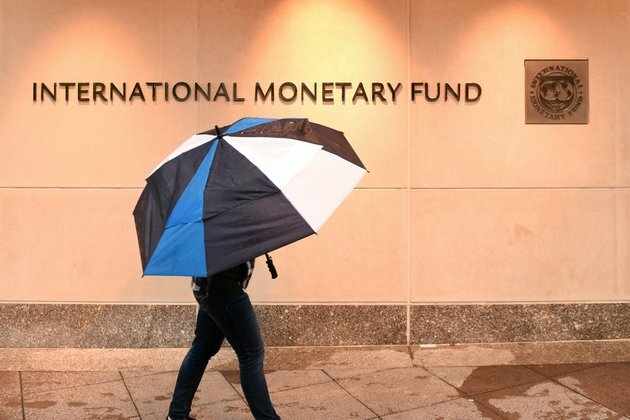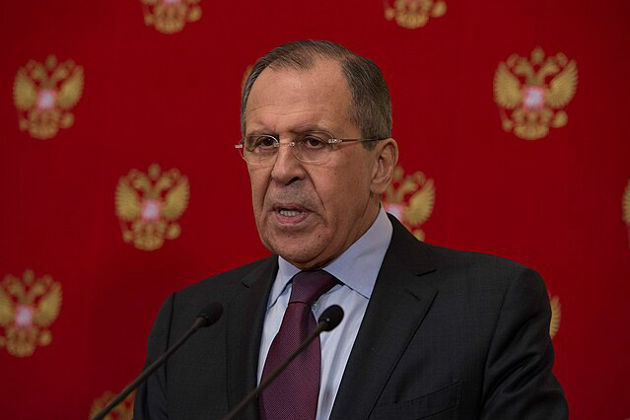Why IMF comments on the UK economy spooked traders and investors
The Conversation
01 Oct 2022, 00:10 GMT+10

Everyone from political pundits to people on the street have issued forth on the new UK government's tax cut-laden growth plan recently. But it was a rare public rebuke from the International Monetary Fund (IMF) that really impacted financial markets.
Days after the government made its mini-budget announcement, the IMF warned that "large and untargeted fiscal packages" could work at "cross purposes" to monetary policy, referring to current efforts by central banks around the world to fight rampant inflation. It also suggested the government should reevaluate its tax measures and provide more targeted energy crisis support at its next budget, currently scheduled for November 23.
Investors responded by beating an even hastier exit from government bond markets and sending the pound plummeting. Within hours of the IMF statement, the Bank of England had announced a plan to try to calm the markets.
The IMF's decision to comment on UK tax policy was significant and clearly had an impact on traders and investors. And while the uninitiated may be blissfully unaware of the IMF's existence, it has played a key role in supporting economies in trouble since the middle of the last century.
Upholding global financial stability
The IMF was established in 1944 at the Bretton Woods Conference, which sought to stabilise global finances after the second world war. Based in Washington D.C., it is an international organisation with 190 member states - from Afghanistan to the UK and US, right through to Zimbabwe.
Its mandate is to uphold international financial stability, which it tries to do by monitoring global macroeconomic developments and providing governments with advice and training on economic policy management.
Most importantly, perhaps, the IMF frequently acts as a "lender of last resort" for its members. This means it provides countries in dire financial straits with much-needed money in the form of loans.
In return, these countries must agree to certain austerity measures. Depending on the situation, this can include tax hikes and drastic spending cuts, alongside other substantial economic reforms.
In the last few years, governments in Ecuador and Pakistan, among others, have hiked interest rates, cut back on public spending programmes, and reduced subsidies on household essentials such as fuel and food to meet the IMF's performance criteria. As a result, the IMF has become one of the world's most controversial organisations.
Since the performance criteria it uses are based on the IMF's worldview, the question of whether its advice is adequate, proportionate, and effective is often subject to debate.
For IMF advocates, the sometimes draconian measures it mandates are necessary to restore investor confidence, boost economic growth and help countries become more competitive in the long run. As such, the IMF can work like a seal of approval for a country's policy plans, helping governments to shore up international confidence in their economies.
To its critics, the IMF has used its policy leverage to advance reforms that have increased poverty and inequality, leaving countries with deep social and political scars for years after accepting its help. For example, during the Ebola crisis in 2014-15, the IMF was criticised for contributing to underfunded health systems that prevented effective government responses to the epidemic.
Moving markets
Regardless, as the recent case of the UK shows, an IMF verdict on government policy proposals can significantly affect financial markets. For countries with immediate financing needs - typically developing economies - restoring investor confidence with an IMF intervention can be critical to the successful resolution of financial crises.
But the IMF has also used its "magic shield" to rescue UK governments from global financial woes in the past. In fact, since the Fund's creation, the UK has called upon the IMF 11 times.
Its last IMF rescue happened in 1976 when stagflation and political stalemate forced the UK government to ask for a loan to halt speculative pressures on the British pound. The IMF provided not only financial relief, but also stability to a newly elected British administration by helping to calm market nerves about the UK economy.
This time, the IMF offered up its thoughts on the current economic situation in Britain, rather than being invited to intervene. But instead of curbing speculation about the UK's financial viability, the statement had the opposite effect: markets panicked.
Mortgage lenders continued to pull their offerings and investors kept unloading government bonds, forcing up yields and the cost of government borrowing. Add the plummeting British pound in the mix and the current situation is in danger of becoming a textbook financial crisis.
But the IMF's assessment is in line with international experts and ratings agencies in doubting that tax cuts will help reignite UK economic growth. Instead, it argues that the cuts will further expand the budget deficit.
Without a sound fiscal plan, this will increase the need for new government debt. At a time of rampant inflation, deteriorating global economic conditions and rising interest rates - which affect the cost of financing for the government - such debts may become unsustainable for the UK.
Taking into account the reaction of market participants to the IMF's statement, and that the Bank of England felt the need to intervene in the bond market afterwards, the IMF assessment seems to have carried weight.
Certainly, the UK in debt distress is the last thing the world needs. Many governments in developing and emerging markets are struggling to keep their own economies afloat right now while awaiting financial relief from western banks and the IMF.
But the UK's central position in global financial markets means any panic in the City of London can spread quickly to global financial markets. From this perspective, the IMF's recent comments about the UK can be seen an attempt to prevent the world from slipping further into a winter of despair.
Authors: Bernhard Reinsberg - Reader in Politics, University of Glasgow | Andreas Kern - Associate Teaching Professor, McCourt School of Public Policy, Georgetown University 
 Share
Share
 Tweet
Tweet
 Share
Share
 Flip
Flip
 Email
Email
Watch latest videos
Subscribe and Follow
Get a daily dose of Sri Lanka Source news through our daily email, its complimentary and keeps you fully up to date with world and business news as well.
News RELEASES
Publish news of your business, community or sports group, personnel appointments, major event and more by submitting a news release to Sri Lanka Source.
More InformationBusiness
SectionRussia among 4 systemic risk countries for Italian banks
MILAN, Italy: Italian regulators have flagged four non-EU countries—including Russia—as carrying systemic financial risk for domestic...
US debt limit raised, but spending bill fuels fiscal concerns
NEW YORK CITY, New York: With just weeks to spare before a potential government default, U.S. lawmakers passed a sweeping tax and spending...
Shein hit with 40 million euro fine in France over deceptive discounts
PARIS, France: Fast-fashion giant Shein has been fined 40 million euros by France's antitrust authority over deceptive discount practices...
Meta hires SSI CEO Gross as AI race intensifies among tech giants
PALO ALTO/TEL AVIV: The battle for top AI talent has claimed another high-profile casualty—this time at Safe Superintelligence (SSI),...
Engine defect prompts Nissan to recall over 443,000 vehicles
FRANKLIN, Tennessee: Hundreds of thousands of Nissan and Infiniti vehicles are being recalled across the United States due to a potential...
Microsoft trims jobs to manage soaring AI infrastructure costs
REDMOND, Washington: Microsoft is the latest tech giant to announce significant job cuts, as the financial strain of building next-generation...
International
SectionWeapons pause by Trump signals shift away from foreign wars
WASHINGTON, D.C.: President Donald Trump is drawing praise from his core supporters after halting key arms shipments to Ukraine, a...
Moscow removes Taliban from banned list, grants official status
MOSCOW, Russia: This week, Russia became the first country to officially recognize the Taliban as the government of Afghanistan since...
Netanyahu vows 'No Hamas' in postwar Gaza amid peace talks
CAIRO, Egypt: This week, both Hamas and Israel shared their views ahead of expected peace talks about a new U.S.-backed ceasefire plan....
US sends message by publicizing visa ban on UK punk-rap band
WASHINGTON, D.C.: The Trump administration has made public a visa decision that would usually be kept private. It did this to send...
Tragedy in Spain: Diogo Jota and his brother die in car accident
MADRID, Spain: Liverpool footballer Diogo Jota and his younger brother, André Silva, have died in a car accident in Spain. Spanish...
Early heatwave grips Europe, leaving 8 dead and nations on alert
LONDON, U.K.: An unrelenting heatwave sweeping across Europe has pushed early summer temperatures to historic highs, triggering deadly...













